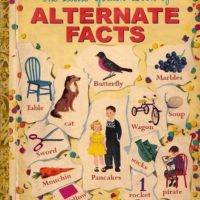
It’s Not That Black and White
Whew-this has been a tough week. We Americans have watched too much violence, too many shootings, too much needless death. Let’s all take a collective breath in. Good, now let it all out. Nothing can erase the anguish of these families that have been ripped apart by the past week’s violence, but doesn’t that feel at least a little better? It should. It just might be the only thing we have done this week without shouting at each other.
Yes, the gruesome and horrifying deaths of Alton Sterling and Philander Castile followed by the sinister sniper shootings in Dallas have rocked our nation’s social fabric and left us reeling in the aftermath of questions and anger. Many folks have understandably criticized a police force that too often resorts to violence against our own citizens, especially those who happen to be brown or black. Meanwhile, others have suggested that the Black Lives Matter movement is somehow itself a racist institution, a breeding ground for hatred against whites as the very name suggests exclusion rather than a common human bond making all lives sacrosanct. The problem is that with both sides of this debate yelling at the top of their lungs, no one is hearing each other long enough to realize that each side has a point.
Let’s start with the name of the Black Lives Matter movement. Yes, on it’s face without taking into account the requisite historical context that informs our longstanding racial divide, this seems biased because all lives do matter. But that’s just the problem. Those demanding that the group change it’s name to focus on “all lives”, are ignorant of the enduring racial issues that white privilege has inoculated them from. Their insistence that all lives matters fails to recognize that white lives have always mattered. The same cannot be said for black lives which have historically been treated with a systemic disregard, thus the need for a slogan that reminds us that black lives do indeed matter as compared to white lives that have always been held with real institutional concern. No one is suggesting that white lives don’t matter, so get over yourself and be glad that you are not subject to a racism so pervasive and pernicious that you actually have to start an organization that states as its very namesake that your life is worth a damn. That black people actually have to articulate that their lives matter is exactly the point of a problem white people will never fully understand.
My good friend Andrew who works for a criminal justice research center and think tank in my home state of Connecticut will cite statistic after statistic that excruciatingly details the institutional racism that African-Americans are subjected to by law enforcement and the criminal justice system in the United States. They get the raw deal every step of the way in the criminal justice process. They are arrested more often, prosecuted more frequently, and found guilty at a higher rate than their white counterparts. But perhaps the most telling sign of the continued racism in our society is a statistic that some white folks use as an explanation to dismiss the others: African-Americans are more likely to commit crimes than white folks. Now, those wanting to pretend colorblindness and suggest racism ended with Obama’s election to the presidency will tell you that all of this is why African-Americans are arrested, prosecuted and convicted at higher rates, but this misses the point that these statistics factor in the rate of committing the crime in the first place. In other words, black criminals are more likely to be arrested and convicted than white criminals, not just whites in general.

But the fact that there are more black criminals in the first place is itself part of the issue. What really correlates with criminal activity isn’t skin color; it’s economic disenfranchisement. If you are less advantaged economically, you are more likely to commit crimes, period. That this is still so skewed in our society, that African-Americans are still more likely to be involved in criminal activity, is itself an indictment of the true racism black folks are subjected to and that white people will never really grasp.
This, of course, then leads to the next step of the vicious cycle because white police officers, whose experience in law enforcement, where African-Americans are disproportionally represented in the criminal activity they must confront, leads them to believe that they must fear black people more than white. The fact that white police officers are more fearful of African-American suspects and use violence against them more readily is demonstrative not just of the racism of individual police officers or even law enforcement in general, but also of a society that disenfranchises blacks economically and thus places them in the line of fire with police officers far more frequently than whites.
This is also why it is unfair to place all of the blame at the feet of police officers. The blame really lies with all of us. We are all part of a society that allows some people to have greater opportunities and financial stability than others based solely upon the color of their skin. We all bear the collective burden of an institutional racism rooted in socioeconomic disparity but which manifests itself in every waking aspect of cultural understanding. Police officers are not the cause and source of the racism that has been so prominently on display this past week; they are merely the face of the problem, the symbolic vestiges of a racism that goes far beyond the scope of their duty.
So if we really want to combat the historical implications of our nation’s racial divide, we have to dig far deeper than merely the police. We have to take a long look at a society that is always healthiest when these issues never arise in the first place.
Steven Craig is the author of the best-selling novel WAITING FOR TODAY, as well as numerous published poems, short stories, and dramatic works. Read his blog TRUTH: in 1000 Words or Less every TUESDAY and FRIDAY at www.waitingfortoday.com




